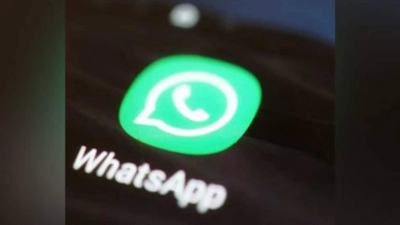News And PoliticsCommunications And EntertainmentSports And FitnessHealth And LifestyleOthersGeneralBusiness And MoneyNigerianewsWorldnewsRelationship And MarriageStories And PoemsArts And EducationScience And TechnologyCelebrityEntertainmentMotivationalsReligion And PrinciplesNewsFood And KitchenHealthPersonal Care And BeautyBusinessFamily And HolidaysStoriesIT And Computer ScienceRelationshipsSportsLawLifestyleComedyReligionLifetipsEducationMotivationAgriculturePoliticsAnnouncementUSMLE And MedicalsMoneyEngineeringPoemsSocial SciencesHistoryFoodGive AidBeautyMarriageQuestions And AnswersHobbies And HandiworksVehicles And MobilityTechnologyFamilyPrinciplesNatureQuotesFashionAdvertisementChildrenKitchenGive HelpArtsWomenSpiritualityQuestions AnsweredAnimalsHerbal MedicineSciencePersonal CareFitnessTravelSecurityOpinionMedicineHome RemedyMenReviewsHobbiesGiveawayHolidaysUsmleVehiclesHandiworksHalloweenQ&A
Computer Science
profile/1711PSX_20200322_135837.jpg
Ajiri

The Hacker Who Attacked Facebook And Google Goes To Jail
~2.4 mins read
Evaldas Rimasauskas, a Lithuanian national who targeted employees at Google and Facebook with spear-phishing attacks by impersonating a vendor company and swindled $121 Million (£92 million) from both companies between 2013 and 2015, has been sentenced to five years in prison and fined over $49.7 million by the Manhattan federal court today.
Between 2013 and 2015, Rimasauskas impersonated a vendor company named Quanta Computer and demanded payments for goods and services from Google and Facebook employees. He interacted with them via phishing e-mails.
Once he received the said payments, he transferred the money to a number of banks located in countries like Latvia, Cyprus, Slovakia, Lithuania, Hungary, and Hong Kong. The successful phishing attack not only revealed that even large firms like Google and Facebook are vulnerable, but also the fact that they kept silent about it even after they discovered that they were tricked.
Rimasauskas pleaded guilty for committing the said cyber crimes before the Manhattan federal court in March this year after he was extradited by US authorities in August 2017 to face justice in the country.
"Evaldas Rimasauskas devised an audacious scheme to fleece U.S. companies out of more than $120 million, and then funneled those funds to bank accounts around the globe. Rimasauskas carried out his high-tech theft from halfway across the globe, but he got sentenced to prison right here in Manhattan federal court," said U.S. Attorney Geoffrey S. Berman.
According to a press release issued by the US Department of Justice, aside from sentencing Rimasauskas to five years in prison, the court ordered him to "serve two years of supervised release, to forfeit $49,738,559.41, and to pay restitution in the amount of $26,479,079.24."
Cyber criminals continue to rob large organisations through BEC scams
Even though Google and Facebook eventually recovered the lost funds and Rimasauskas has been forced to face justice, many organisations across the world have suffered irrecoverable losses to similar BEC scams and are struggling to identify fraudsters or to trace their lost money.
As recently as in November, Nikkei announced that an employee at its US subsidiary was duped by a cyber criminal into transferring as much as $29 million (£22.6 million) to the latter's account.
"In late September 2019, an employee of Nikkei America, Inc. (New York City, United States) ("Nikkei America"), a subsidiary of Nikkei Inc. ("Nikkei"), had transferred approximately 29 million United States dollars (approximately 3.2 billion Japanese Yen) of Nikkei America funds based on fraudulent instructions by a malicious third party who purported to be a management executive of Nikkei.
"Currently, we are taking immediate measures to preserve and recover the funds that have been transferred, and taking measures to fully cooperate with the investigations. We are investigating and verifying the details of the facts and causes of this incident," the company said in a press release.
In 2017, employees at India's only government-owned airlines company Air India fell for a phishing scam orchestrated by Nigerian hackers who posed as employees of Pratt & Whitney and duped the latter into transferring $300,000 (£230,905) to a bank account located in Nigeria.
In September 2017, a scammer also conned MacEwan University in Canada out of 11.8 million CAD after he convinced employees to change payment details for a vendor using email communications. After the phishing attack was discovered, the university said that "controls around the process of changing vendor banking information were inadequate, and that a number of opportunities to identify the fraud were missed."
profile/9729WP_20170319_3.jpg
Ishola

Ways To Send Disappearing Messages With WhatsApp
~3.4 mins read
WhatsApp has recently started rolling out a highly anticipated feature called disappearing messages. If it sounds familiar, that’s because other apps have been offering similar options for a while now, although WhatsApp’s own take does differ a little bit..
The feature is now available for WhatsApp users on Android, iOS and the Web. Here we show you how you can send disappearing messages in WhatsApp.
What Are Disappearing Messages?
Disappearing messages in WhatsApp allow users to send messages that will vanish after a period of time. Once you’ve enabled the feature, you’ll be able to send individual or group messages that will self-destruct after seven days.
The functionality is by no means new, as other apps like Snapchat have had it for a while. Initially, the messaging app offered this option only for photos and videos but later extended the service to include messages as well.
Additional messaging apps that have embraced ephemerality include Facebook, Instagram and Telegram. Gmail also boasts a Confidential mode which lets users send messages with an expiration date attached.
This type of communication can prove extremely practical in various scenarios, as it allows users to share private thoughts or just silly pictures or other media without leaving a digital data trail. As it is, we’re probably going to see more and more apps implement this option going forward.
A Few Things to Know About Disappearing Messages on WhatsApp
Before we dive into the tutorial, we should first discuss the characteristics of disappearing messages on WhatsApp a bit. For starters, you can turn them on in any thread you’ve started before, but know that the setting won’t affect texts you previously sent or received in that chat. In group chats, the admin will be able to turn disappearing messages on and off.
If you’ve exchanged a few disappearing messages in a thread but forgot all about checking WhatsApp for the next seven days, the messages will be deleted. However, you should keep in mind that the preview of any new messages received during the period of absence will still be displayed in the notification bar until you return to WhatsApp.
If you want to use the reply function on a disappearing message, the quoted text (the text to which you are replying) might remain in that chat after seven days. Alternatively, if a disappearing message is forwarded to a chat that has this particular feature off, the message won’t be deleted in the chat you forwarded it to.
What About Media Files?
With disappearing messages on, the media gets deleted from within the chat after seven days, but the files will continue to exist in your phone. Users can turn off the auto-download feature if they want to ensure that the media they share in the threads is permanently destroyed.
Just note that if you disable the feature, its effect will spread across all your chats, not just the ones with disappearing messages turned off. You can turn auto-download off by going to “WhatsApp Settings -> Storage and data -> Media auto-download -> Turn off all options.”
How to Turn On Disappearing Messages on Mobile
For the time being, it’s only possible to set the messages to self-destruct after a period of seven days. Here’s how you can activate the feature on your mobile. These steps work on both Android and iOS devices.
1. Open WhatsApp on your phone.
2. Identify the conversation for which you want to activate disappearing messages.
3. Tap on the contact’s avatar from the app’s main screen.
4. Select the Info button.
5. Look for and tap on “Disappearing messages” – it should be off by default.
6. A welcome message will appear informing you about disappearing messages. Select Continue.
7. Turn the feature on.
That’s it, you’ve now enabled the feature so that all messages you sending from now on will be subject to destruction after a period of seven days. In the thread, you will be able to see a message alerting you that the option is on.
If you ever want to switch back, repeat the process described above and tap on Off to disable the option.
How to Turn On Disappearing Messages on the Web
WhatsApp Web is a very handy tool. Unfortunately, it does not offer all the features of the mobile version. The good news is that the disappearing messages feature has made it on the Web and this is how you can turn it on quickly.
1. Open WhatsApp Web on your PC.
2. Navigate to the conversation for which you want to set disappearing messages.
3. Tap on the contact’s name or avatar at the top.
4. Look for Disappearing Messages in the right side menu that appears.
5. Turn the feature on.
profile/8912Screenshot_20210103-192218.png
Chukwudi3647

UK TO REGULATE GOOGLE AND FACEBOOK
~1.7 mins read
Britain announced Friday it will set up a watchdog to regulate tech giants such as Facebook and Google, help protect smaller competitors and give consumers more control over personal data.
Britain’s announcement comes as US tech giants are facing increasing scrutiny around the world over their power and as other countries step up their regulatory powers.
“Our new, pro-competition regime for digital markets will ensure consumers have choice, and mean smaller firms aren’t pushed out,†said Business Secretary Alok Sharma.
The measures are due to come into force after Britain goes it alone at the end of a post-Brexit transition period from the European Union.
Next month the EU is to present its own major legislation called the Digital Services Act, which will set out rules for strict oversight over big tech.
Britain’s Department for Culture, Media and Sport said the new regulator, the Digital Markets Unit, will “govern the behaviour of platforms that currently dominate the market, such as Google and Facebookâ€.
The aim is “to ensure consumers and small businesses aren’t disadvantagedâ€, it said.
Britain’s Digital Secretary Oliver Dowden acknowledged the online platforms bring “huge benefits for businesses and society†but said the “concentration of power amongst a small number of tech companies†was curbing growth and innovation, which could have “negative impacts†for the public.
A new statutory code will aim to make the tech giants “more transparent about the services they provide and how they are using consumers’ dataâ€, the government said.
Consumers will also be able to choose whether to see personalised advertising.
Google reacted by saying it wants to “work constructively†with the new regulator.
Facebook said it remains “committed to working with our UK industry partners to find ways to support journalism and help the long-term sustainability of news organisationsâ€.
It is preparing to launch its Facebook News service in the UK, which works with news media and includes original reporting.
Britain’s move comes after the US Justice Department last month filed a landmark lawsuit against Google, accusing it of maintaining an “illegal monopoly†in online search and advertising, a claim that Google has described as “deeply flawed
Advertisement
Loading...
 Ajiri
Ajiri
 Ishola
Ishola
 Chukwudi3647
Chukwudi3647